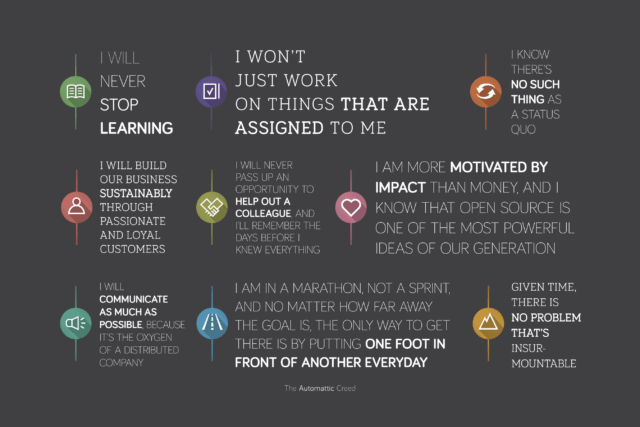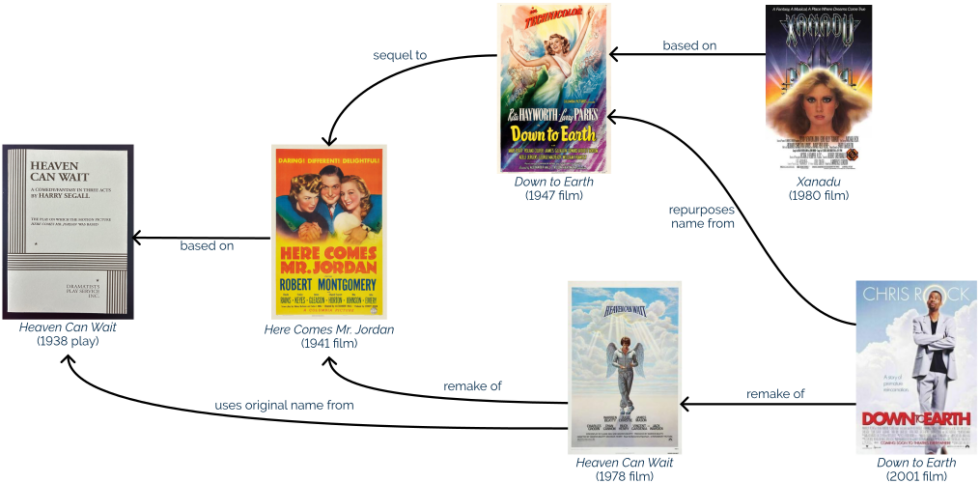This week has been a wild ride at Automattic. I’ve shared my take on our recent drama already1.
Off the back of all of this, our CEO Matt Mullenweg realised:
…
It became clear a good chunk of my Automattic colleagues disagreed with me and our actions.
So we decided to design the most generous buy-out package possible, we called it an Alignment Offer: if you resigned before 20:00 UTC on Thursday, October 3, 2024, you would receive $30,000 or six months of salary, whichever is higher.
…
HR added some extra details to sweeten the deal; we wanted to make it as enticing as possible.
I’ve been asking people to vote with their wallet a lot recently, and this is another example!
…
This was a really bold move, and gave many people I know pause for consideration. “Quit today, and we’ll pay you six months salary,” could be a pretty high-value deal for some people, and it was offered basically without further restriction2.
A 2008 Havard Business Review article (unpaywalled version) talked about a curious business strategy undertaken by shoe company Zappos:
…
Every so often, though, I spend time with a company that is so original in its strategy, so determined in its execution, and so transparent in its thinking, that it makes my head spin. Zappos is one of those companies
…
It’s a hard job, answering phones and talking to customers for hours at a time. So when Zappos hires new employees, it provides a four-week training period that immerses them in the company’s strategy, culture, and obsession with customers. People get paid their full salary during this period.
After a week or so in this immersive experience, though, it’s time for what Zappos calls “The Offer.” The fast-growing company, which works hard to recruit people to join, says to its newest employees: “If you quit today, we will pay you for the amount of time you’ve worked, plus we will offer you a $1,000 bonus.” Zappos actually bribes its new employees to quit!
…
I’m sure you can see the parallel. What Zappos do routinely and Automattic did this week have a similar outcome
By reducing – not quite removing – the financial incentive to remain, they aim to filter their employees down to only those whose reason for being there is that they believe in what the company does3. They’re trading money for idealism.

Buried about half way through the Creed is the line I am more motivated by impact than money, which seems quite fitting. Automattic has always been an idealistic company. This filtering effort helps validate that.
The effect of Automattic’s “if you don’t feel aligned with us, we’ll pay you to leave” offer has been significant: around 159 people – 8.4% of the company – resigned this week. At very short notice, dozens of people I know and have worked with… disappeared from my immediate radar. It’s been… a lot.
I chose to stay. I still believe in Automattic’s mission, and I love my work and the people I do it with. But man… it makes you second-guess yourself when people you know, and respect, and love, and agree with on so many things decide to take a deal like this and… quit4.

(These numbers are my own estimation and might not be entirely accurate.)
There’ve been some real heart-in-throat moments. A close colleague of mine started a message in a way that made me briefly panic that this was a goodbye, and it took until half way through that I realised it was the opposite and I was able to start breathing again.
But I’m hopeful and optimistic that we’ll find our feet, rally our teams, win our battles, and redouble our efforts to make the Web a better place, democratise publishing (and eCommerce!), and do it all with a commitment to open source. There’s tears today, but someday there’ll be happiness again.
Footnotes
1 For which the Internet quickly made me regret my choices, delivering a barrage of personal attacks and straw man arguments, but I was grateful for the people who engaged in meaningful discourse.
2 For example, you could even opt to take the deal if you were on a performance improvement plan, or if you were in your first week of work! If use these examples because I’m pretty confident that both of them occurred.
3 Of course, such a strategy can never be 100% effective, because people’s reasons for remaining with an employer are as diverse as people are.
4 Of course their reasons for leaving are as diverse and multifaceted as others’ reasons for staying might be! I’ve a colleague who spent some time mulling it over not because he isn’t happy working here but because he was close to retirement, for example.
